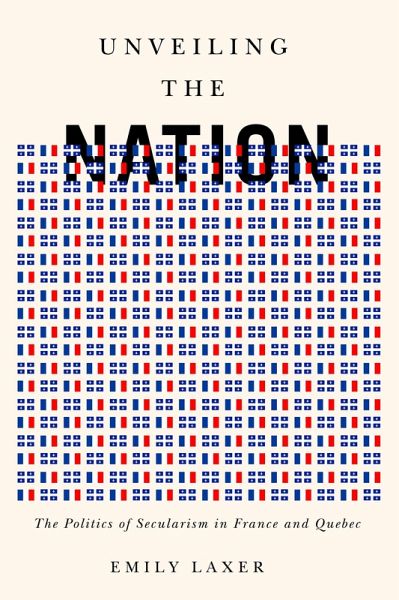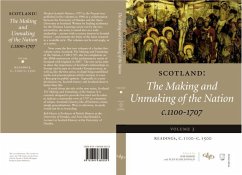
Unveiling the Nation (eBook, PDF)
The Politics of Secularism in France and Quebec
Versandkostenfrei!
Sofort per Download lieferbar
24,95 €
inkl. MwSt.
Weitere Ausgaben:

PAYBACK Punkte
12 °P sammeln!
Over the last few decades, politicians in Europe and North America have fiercely debated the effects of a growing Muslim minority on their respective national identities. Some of these countries have prohibited Islamic religious coverings in public spaces and institutions, while in others, legal restriction remains subject to intense political conflict. Seeking to understand these different outcomes, social scientists have focused on the role of countries'' historically rooted models of nationhood and their attendant discourses of secularism. Emily Laxer''s Unveiling the Nation problematizes t...
Over the last few decades, politicians in Europe and North America have fiercely debated the effects of a growing Muslim minority on their respective national identities. Some of these countries have prohibited Islamic religious coverings in public spaces and institutions, while in others, legal restriction remains subject to intense political conflict. Seeking to understand these different outcomes, social scientists have focused on the role of countries'' historically rooted models of nationhood and their attendant discourses of secularism. Emily Laxer''s Unveiling the Nation problematizes this approach. Using France and Quebec as illustrative cases, she traces how the struggle of political parties for power and legitimacy shapes states'' responses to Islamic signs. Drawing on historical evidence and behind-the-scenes interviews with politicians and activists, Laxer uncovers unseen links between structures of partisan conflict and the strategies that political actors employ when articulating the secular boundaries of the nation. In France''s historically class-based political system, she demonstrates, parties on the left and the right have converged around a restrictive secular agenda in order to limit the siphoning of votes by the ultra-right. In Quebec, by contrast, the longstanding electoral salience of the "national question" has encouraged political actors to project highly conflicting images of the province''s secular past, present, and future. At a moment of heightened debate in the global politics of religious diversity, Laxer''s Unveiling the Nation sheds critical light on the way party politics and its related instabilities shape the secular boundaries of nationhood in diverse societies.
Dieser Download kann aus rechtlichen Gründen nur mit Rechnungsadresse in A, B, BG, CY, CZ, D, DK, EW, E, FIN, F, GR, HR, H, IRL, I, LT, L, LR, M, NL, PL, P, R, S, SLO, SK ausgeliefert werden.













